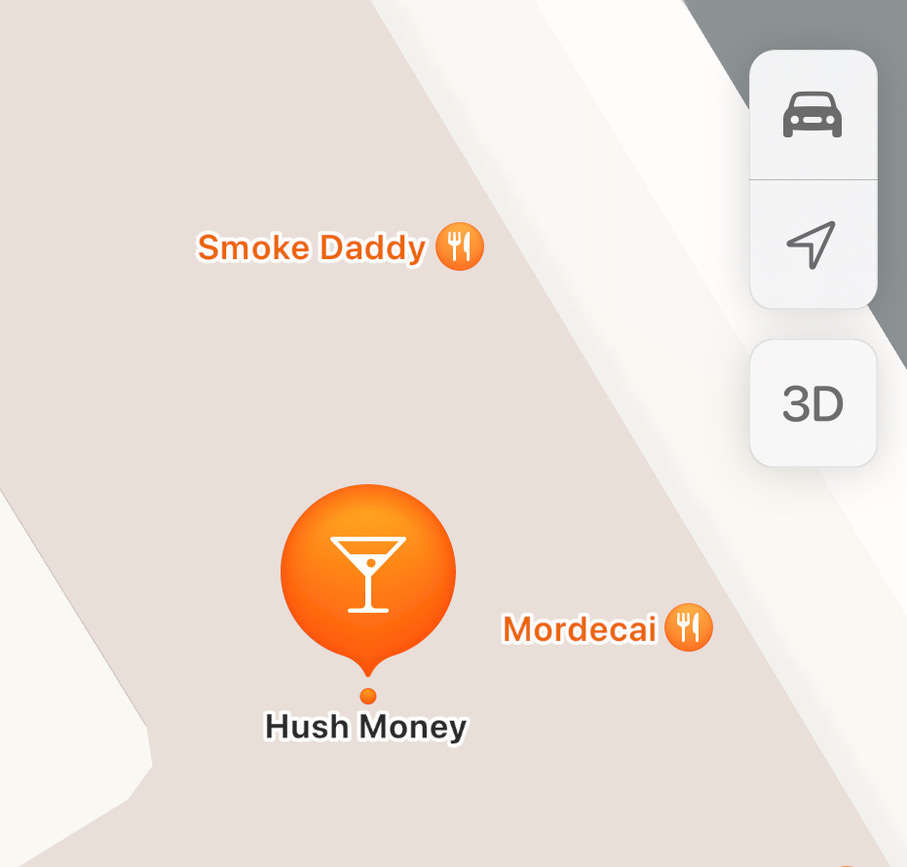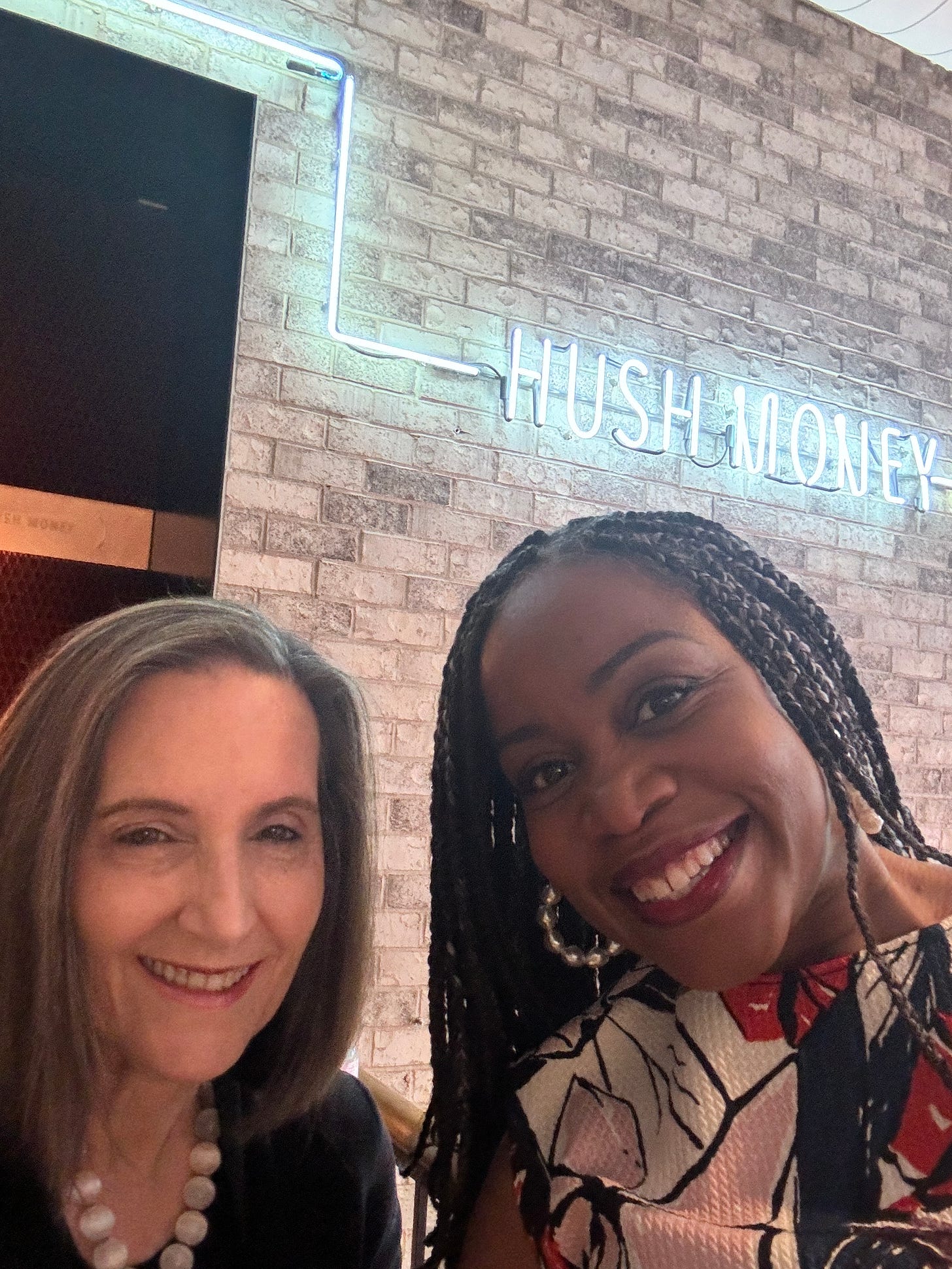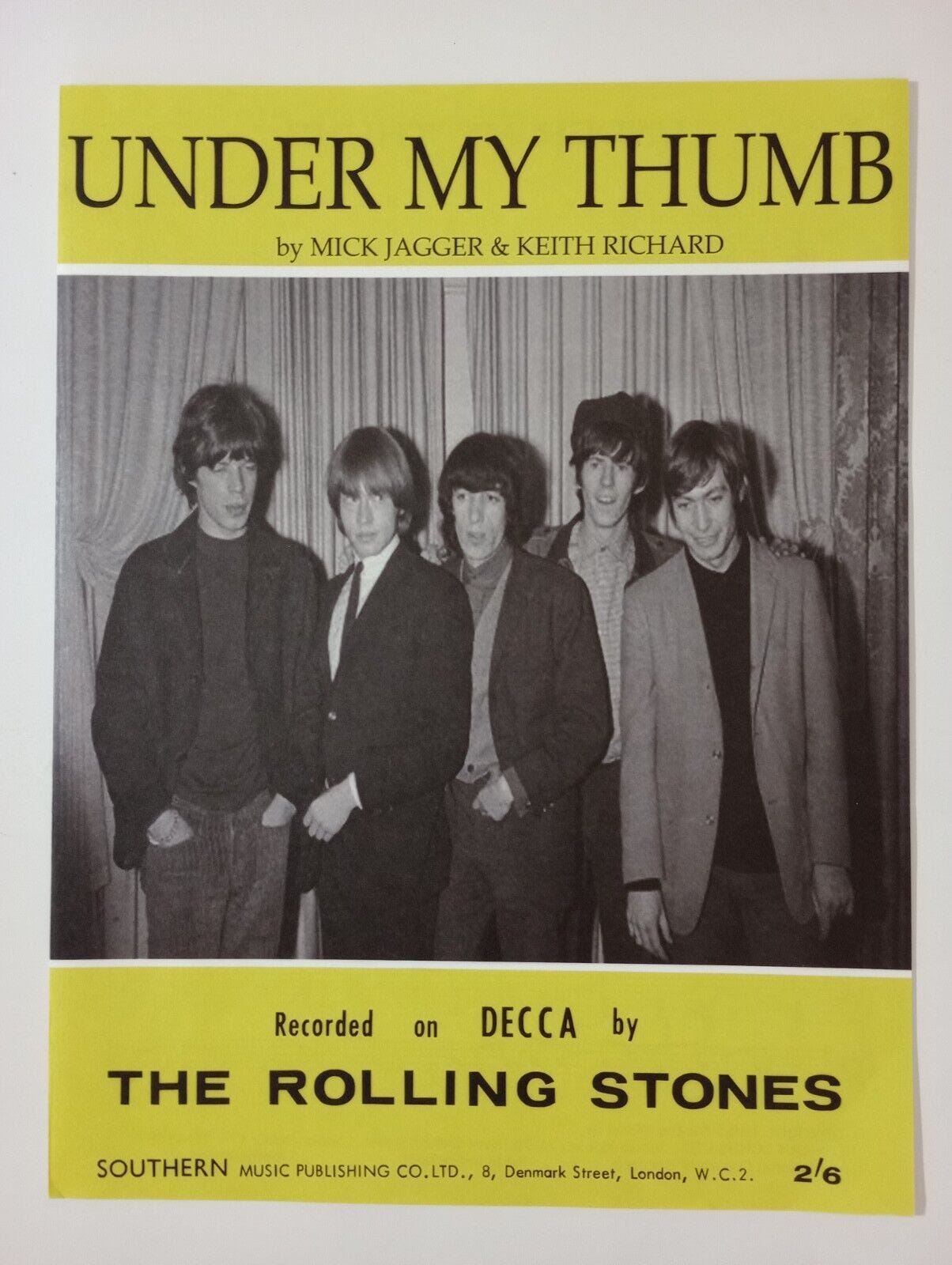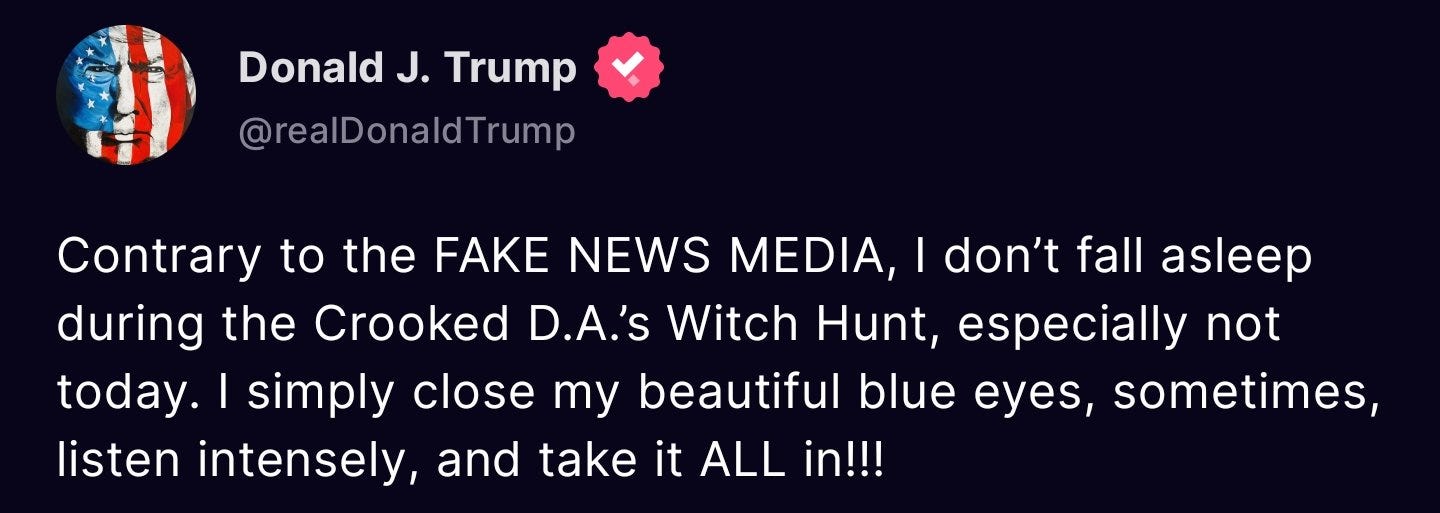Contemptible
In the category of things you can’t make up. This is a bar around the corner from where I am today.
#SistersInLaw, the podcast I co-host with Barb McQuade, Jill Wine-Banks and Kimberly Atkins Stohr, is live in Chicago tonight, and the irony at this moment is just too rich! Because of the show, I’m writing this earlier in the day than usual. If anything happened late in the day, expect we’ll discuss it tomorrow. (And we have shows in Detroit and Boston later this month. Come see us!)
This morning started off with yet another contempt hearing. If you were hoping Judge Merchan would punish Donald Trump for repeat gag order violations with some jail time, you were disappointed. He didn’t.
The gag order requires Trump to "refrain from making or directing to be made” public statements about witnesses and “about any prospective juror or any juror in this criminal proceeding." Trump has to willfully violate the gag order—he has to know he’s doing it—before he can be found in contempt.
There were four possible violations under consideration today. Two involved attacks on Michael Cohen, whom Trump called a liar. Trump also complimented David Pecker, saying he was “a nice guy.” Prosecutors argued that both the carrot and the stick approaches toward witnesses violated the gag order, but Judge Merchan seemed disinclined to engage on those allegations and primarily focused on the second allegation, that on April 22, Trump talked about the jury on “Real America’s Voice,” a right-wing streaming, cable and satellite television channel founded in 2020. Real America’s Voice is home to people like Steve Bannon and Charlie Kirk.
Trump commented that the “jury was picked so fast — 95% democrats. The area's mostly all Democrat. You think of it as a — just a purely Democrat area. It's a very unfair situation that I can tell you.” Trump’s lawyers tried to argue that this wasn’t talk about an individual juror, claiming that is the focus of the gag order. The Judge was not impressed, reportedly shaking his head and “looking incredulous” at this line of argument, according to Adam Klasfeld.
All of these lawyers know that with virtually any judge, public comments about the jury while the case is in progress are off-limits. But the Judge’s goal here isn’t to put Trump in jail, it’s to ensure a fair and impartial trial that leads to a jury verdict that, if it’s a conviction, will be affirmed on appeal. So, from the Judge’s perspective, today’s proceeding was a win. He’s got Trump under his thumb.
Trump, or at least his lawyers, seem to know that. They came back to the court with a request for clarification about whether reposting articles by legal experts that criticize the prosecution’s case and mention prosecutors or jurors would be acceptable. “I’m not going to be in the position of looking at posts and determining in advance whether you should or should not post,” Judge Merchan told Trump’s lawyer. He said he thought the order itself was clear. “I think if in doubt, steer clear. That’s all I’m going to say,” Merchan advised them.
One tactical hurdle lawyers have to deal with at trial is that they aren’t permitted to explain the significance of the testimony they’re eliciting while they’re questioning witnesses. The lawyers don’t get to testify, only the witnesses do. So there’s no sort of introduction where the lawyer gets to tell the jury why they’re calling each witness and how their testimony fits into the larger picture. They have to hope they’re following along.
But, the lawyers get to put all the pieces of the puzzle together for jurors in closing argument. So, while they’re taking testimony, they’re collecting key pieces of testimony they’re getting from each witness that they’ll hone in on when they finally get to argue their case. During witness examination today, the lawyers on both sides scored some points that they hope will be telling for the jury.
For the People:
Stormy Daniels’ former lawyer Keith Davidson was being asked about the written denial of a relationship with Trump she signed in January of 2017. Davidson testified that he was careful to make sure that the statement was carefully written so she could sign it truthfully. Asked about the technicalities, Davidson pointed out it referred to a romantic sexual encounter with Trump, and that no one has ever said the relationship was “romantic.” The prosecutor asked, “isn’t this cleverly misleading?” And of course, the jury understood that it was, and that was the whole point. Trump’s lawyer may argue that Stormy denied it before she said it was true, but Davidson’s testimony was decimating on that point.
The obvious issue in this case is whether Cohen was acting on his own or acting along with, even being directed by, Trump. It’s not dispositive, but the People got in some election night 2016 texts between Davidson and Dylan Howard, then the Editor-in-Chief of the National Enquirer. As it became clear Trump was going to win, Davidson texted Howard, “what have we done?” Howard responded, “Oh my God.”
This and other testimony made clear that the prosecution was intent on eliciting testimony that the deal with Stormy Daniels was all about the election. Trump’s lawyer stumbled into that at one point during cross-examination, emhasizing a comment Davidson made to Michael Cohen, “If he loses this election, we all lose all f***ing leverage. This case is worth zero.” Trump’s lawyer asked Davidson if he remembered saying that. Davidson said he did. The jury will too.
The prosecution plays a recording of Trump talking to Cohen. Cohen drops this line: “I need to open up a company for the transfer about our friend David.” David Dennison was the pseudonym used for Donald Trump in the Stormy Daniels deal and the comment was made in the context of creating the shell company, Essential Consultants, LLC, that was used to pay her.
These are just a few extractions from what will be days of testimony before the jury gets the case. Prosecutors build proof beyond reasonable doubt not from just one witness or one document, but by layering testimony upon testimony so that circumstantial evidence becomes airtight. The classic example is, if you wake up in the morning and there’s snow on the ground, you can assume in the absence of any other explanation, that it snowed over the night.
Here, the government will try to show the jury, through circumstance upon circumstance, that Trump was in the know. They will ask why Cohen would pay $130,000 on Trump’s behalf, a payment that required him to take out an equity line of credit on his own home, if he was just a rogue actor. The payment benefitted Trump, not Cohen, and Cohen, by virtue of the care with which he decided how it would happen, showed that he understood he was exposing himself to some legal risk. Why would the notoriously cheap Trump reimburse Cohen otherwise, and in any case, why do it using a series of falsified records? Reasonable doubt is just that, a reasonable one. The prosecution’s job is to show that purely speculative doubt is not enough and that there are no reasonable questions about Trump’s dedication to this endeavor. Juries understand this when prosecutors put the right evidence in front of them.
For the Defense:
It’s all about keeping Trump out of it, and today the jury saw a settlement agreement between Trump and Stormy Daniels that was signed by Stormy and her then-attorney, Keith Davidson. But only Michael Cohen signed on the other side. Trump did not. Expect the defense to argue this vehemently in closing. The signed letter may say the settlement is between Daniels and Trump, but without his signature, how do the People prove Trump knew what was there and agreed to it?
First question in the cross-examination of Davidson was whether he had ever met Trump. “Never,” was the response. The defense will try to pick up as many of these nuggets as they can to argue Cohen was a rogue actor and Trump was unaware of what he was doing and how he did it.
Perhaps most importantly, the defense is trying to pick up evidence to argue that Michael Cohen has a vendetta against Trump because of the personal slight when Trump didn’t take him to Washington for a White House or other government job after he won the election. Expect the attack on Cohen’s credibility in this regard to be fierce. The defense will scrape for every last bit of testimony they can get in this regard. Davidson testified about it today, giving the defense a kickoff point. He said Cohen was deeply distressed about being left behind. Davidson testified, “I thought that he was going to kill himself.”
It is still early in the trial. Lots of evidence and testimony left to come. But for the lawyers, closing arguments are already in their minds as they formulate the arguments they hope the jury will find compelling.
Even a couple of weeks in, it can be hard to believe this is really happening. Tough to believe this man ever was or could again be the President of the United States. After days of observation by the press that Trump appeared to be sleeping in court as his criminal trial is underway, he had this rejoinder today:
We’re in this together,
Joyce






Yes’m he certainly could be president again if too many people defy common logic, assume someone else will take care of the problem, and surrender democracy that we cannot recover. Note vote vote vote vote vote. Call out nonsense. Read Joyce, Heather, and those who bravely remind us how not normal and ultimately perilous this is. Thank you.
Trump is a disgusting human being, but he's canny and that's what the use of Cohen was all about. Of course Trump didn't sign the agreement, that would have made the entire effort moot. The other side of that deal knew exactly who Cohen was working on behalf of.